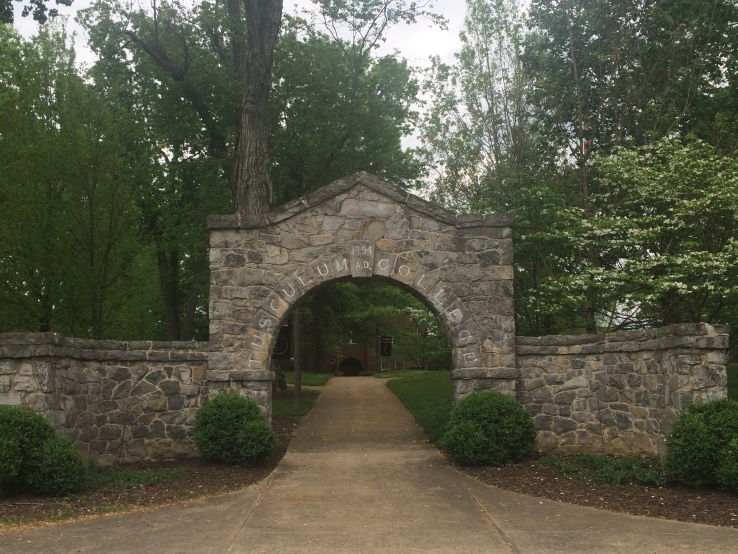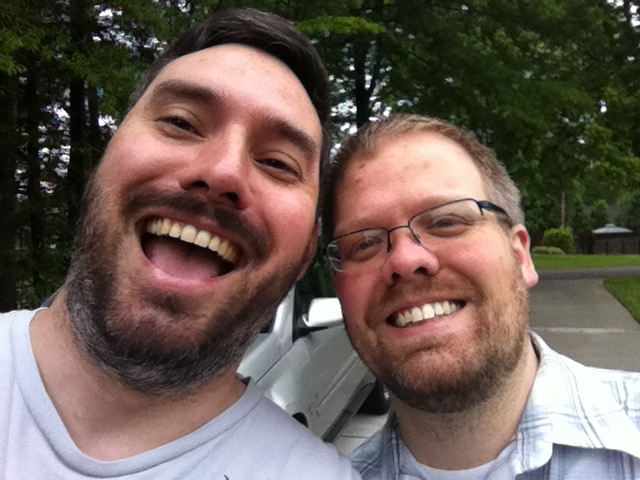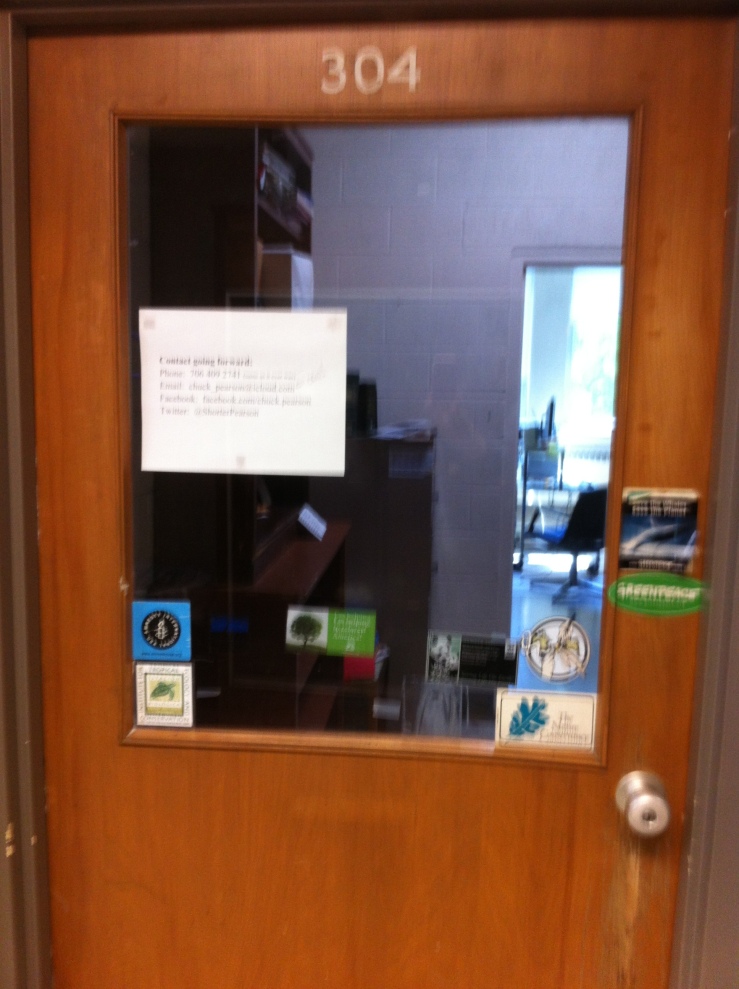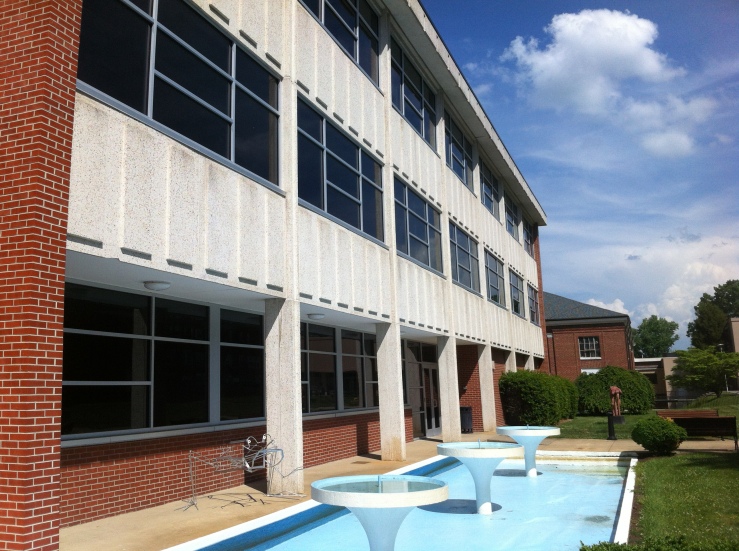
My mind keeps returning to a road trip to Western Massachusetts in January of 2012.
Don’t pay much attention to the hiding child on the left. We’ll talk about her another time. (And yes, young one, your time is coming.)
We took that exceptionally talented child on the right to a college there to start an academic career. There was promise all over the thing. Certainly, there are memories of the fear that comes with taking someone who has been so much at the center of your life for the better part of two decades on one part of the trip and driving back home without them. But it was an incredibly joyous trip as well, in no small measure because we saw the promise in the place, we saw how tight-knit the community was, and I knew what it was like to join a small, tightly-knit community across the country from my home myself, and how completely that place informed who I became.
There are so many of us, especially those of us who have benefited from higher education over the course of our lives, who make trips like that and who want what we experienced so desperately for our own children.
This is what you need to know: That promise we saw in January 2012 was never fulfilled.
I will still look back on the decisions we made in that part of life and insist we didn’t make a mistake – the child didn’t, and the parents didn’t. In another era of our history, I do believe that the promises made would have been taken seriously, and all parties would have understood the commitments they were making – especially parties involved with a college that was part of an institution with a nine-figure endowment, resources that placed the institution among the genuinely elite.
But the way that my child’s education progressed through 2012 and 2013 laid bare for me, in a way that had never been clear to me before, how completely cynical our higher education apparatus had become, and the extent to which my child was far more of a revenue stream for that institution than a student to be supported through their education. Even through a career that I had spent at independent colleges in the midst of real economic stress, I worked alongside people who took the needs of the students with the utmost seriousness and who would put other priorities aside when the human needs of a student were being threatened. We did that even as we became increasingly convinced that our own needs weren’t going to be cared for by the institution, and our own futures were increasingly uncertain.
But over the course of a year, I saw the decisions made by this elite institution we had put faith in repeatedly put revenue to the institution over educational experience.
I watched my eldest child discover activism, in a real and tangible way, as the realization that the experience they had been promised would be diluted at the hands of students who provided immediate revenue to the college, and that if those students put underrepresented populations of the college under threat, the sanction they’d receive would be inversely proportional to the revenue they could provide.
We had hard conversations over how we needed to receive the financial support in keeping with our real need, not the need that the College Board’s proprietary paperwork was communicating, and we wouldn’t be able to keep that child enrolled in that place without real consideration. Again: I’ve worked at these places for over a decade now. I know how the game is played. But the institution simply did not care, and frankly ignored everything I ever said.
The experience we had at that school – the experience that talented child had at that school – ultimately failed. We all made mistakes along the way. But at one point in our history, you could have confidence that the institution would have interest in making sure that the student would be cared for throughout it all.
At that one place, that concern never materialized.
For a while, that was our major experience of our own children’s higher education. And that experience was being further colored by the economic failure of the institution where I worked, a place where I was confident on balance that we were doing right by our students. If you ever wonder why I have the deepest of suspicion of where we stand in higher education in the early 21st century, there are a host of reasons for that. When that child decided to stay away from school for a season of life, I had a very difficult time arguing.
I don’t think we understand nearly as well as we should how precarious our nation’s leadership in higher education is – and how much of that leadership we have already lost. When you make all of your decisions about the bottom line and you alienate the people who are predisposed to be your ambassadors, not just for one season of time but for a lifetime, you lose the trust that the whole enterprise runs off of. And then you wonder why so few people respect the academic knowledge of the professor, or the place of the institution as an employer and an economic center worth investing in.
Trust is not something that you’re guaranteed. It is not birthright. It is earned through evidence that accumulates over years, decades, generations. That evidence is slipping away, and our institutions’ place in our nation’s conversation along with it.
The institution’s promise may not have been realized.
The child’s promise was.
After that season away, there was a decision to restart, half on a whim, at a regional university, if not in our backyard, at least a few yards over. The failure of the institution placed me at a sister regional university, and we discovered that there’d be tuition benefits at one place by virtue of me working at the other. It was a no brainer.
One of the classes, potentially in support of a poorly-articulated health science path to be named later, was general biology. It was taken under an instructor, Cerrone Foster, who I still haven’t met, much to my own consternation.
I have told the story many times in many circles of the phone call that I received halfway through the term; the professor, working on online postings, minding his own business, when the phone call from the child comes unexpectedly, fraught with all the uncertainty that comes with your relentlessly-independent child calling unexpectedly…
“DAD! WHY DID YOU NEVER TELL ME GENETICS WAS SO COOL!”
(The salt of the father who cut his pedagogical teeth on General Biology I being told by his eldest child that he hadn’t sufficiently shilled for Genetics will be set aside. Grudgingly. There is still salt.)
The absolute enchantment that was awakened by an instructor who cared deeply about the discipline she taught, and who cared about the individual students in the room and nurturing their talent instead of making sure revenue stream obligations to the school were met, is something that even now, four to five years on, we haven’t contained. The student with a wrecked grade point average and every reason to be cynical about higher education for the rest of their life became deeply passionate about every biology course ahead, making the major change that would become permanent, learning not merely to understand the discipline but to explain it to the students who would come after them.
Cerrone Foster, I do not know you, but you lit a fire, and it continues to rage.

Over that time, I wound up returning to the region myself, and we wound up living and working within an hour of one another. I’m not going to pretend that the prospect of landing where my eldest child was going to college wasn’t part of the appeal of a move to East Tennessee. But I wasn’t remotely prepared for the vigor and energy with which that child embraced East Tennessee, and made the place genuinely her own. It remains the most stunning part of the entire story.
Two summers, we’ve even shared the same employer; while I’ve taught summer classes online to varying degrees of success, that child has been front and center in reaching students who would be first-generation college admittees and ensuring they know that the things that make those students who are the very fabric of this part of the world know they are valued and important. At this place, in the summer of 2018 and the summer of 2019, I firmly believe the child has done more important work than the father.
The obvious conclusion to this story is that the child finally and triumphantly finishes that degree, and is grateful for the role that regional university has played in their life, and then chooses to move on to the elite university that will finally allow them to achieve their full potential.
The plot twist is that when the graduate school application process happened, and multiple options were considered, only one was taken with urgency and seriousness.
And that is how my eldest child, Catherine Pearson, early-college recruit and early-college dropout, completed their degree seven and a half years after starting, with honors, and chose to pursue their graduate education at that sterling doctoral institution…
…East Tennessee State University. PhD pre-candidate, Biomedical Sciences.
And how their father, who has lived through higher education in his entire career and knows the risks of the undergraduate and graduate institution being the same regional university, could not be prouder.
The job, you see, isn’t merely quantity of enrollment or retention or even assessment of standards. The job is making sure the student knows what their identity is, gains a fuller understanding of the world around them, and knows their path to realizing all the promise that is captured within them.
I saw clearly how I’d find that path among these mountains.
I never expected, and I don’t even know that I wanted, my own child to find their own path through these mountains.
And that is why East Tennessee State University is one of the most successful universities I have ever known. They did something far, far more important than providing my child with an education.
They provided my child with a home.
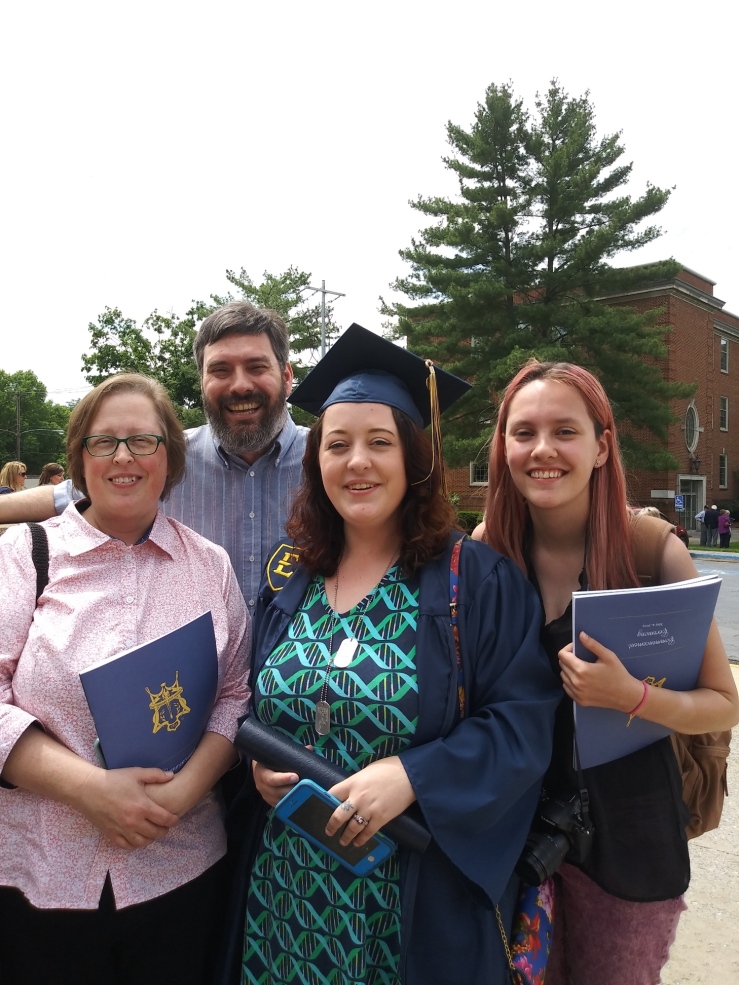



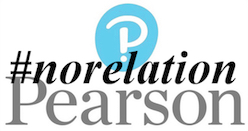 One of the things I’ve spent time working on this year is a full game plan for how I do scholarship at this late stage of my career. And increasingly I feel like an important part of doing that scholarship is promoting the sharing of knowledge in ways that the likes of Pearson Higher Ed and Cengage Learning can’t understand if they’re going to fulfill their business models. The basic science knowledge that’s in a major publisher’s textbook is fundamentally the same as the knowledge that’s in an OpenStax textbook (or the freely-shared, Creative Commons-licensed textbooks from
One of the things I’ve spent time working on this year is a full game plan for how I do scholarship at this late stage of my career. And increasingly I feel like an important part of doing that scholarship is promoting the sharing of knowledge in ways that the likes of Pearson Higher Ed and Cengage Learning can’t understand if they’re going to fulfill their business models. The basic science knowledge that’s in a major publisher’s textbook is fundamentally the same as the knowledge that’s in an OpenStax textbook (or the freely-shared, Creative Commons-licensed textbooks from 